CyberScape Insider Threats
Meet and hear from the federal IT cybersecurity leaders shaping budget and policy priorities. Leaders from the White House, NASA and the Departments of Defense, State, Health and Human Services, Homeland Security and Veterans Affairs will all be in attendance. Our panel topics include Hybrid Cloud Security, Reducing Technical Debt for Stronger Defenses and Shadow IT. Grab breakfast with us and network with the federal cyber community.

Speakers / Panelists
Speakers / Panelists
-
 Michael Hoffman President GovCIO Media & Research
Michael Hoffman President GovCIO Media & Research
Aging IT infrastructure presents numerous cybersecurity risks to federal agencies and also prohibits them from deploying effective security strategies. Hear from defense, health and civilian cyber leaders about how they’re addressing technical debt by balancing targeted IT modernization with popular security approaches such as zero trust to secure data in declining systems.
Speakers / Panelists
-
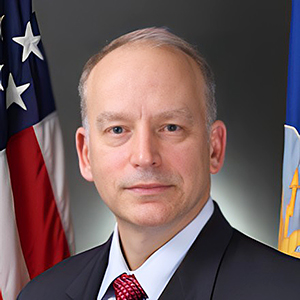 Aaron Bishop CISO Department of the Air Force
Aaron Bishop CISO Department of the Air Force -
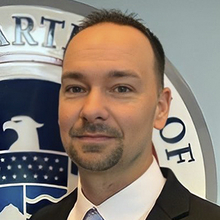 Jason Burt Cybersecurity Advisor CISA
Jason Burt Cybersecurity Advisor CISA -
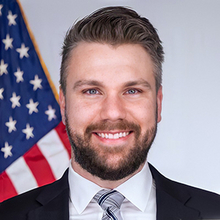 Rob Wood CISO CMS
Rob Wood CISO CMS -
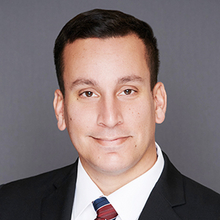 Felipe Fernandez CTO Fortinet Federal
Felipe Fernandez CTO Fortinet Federal -
 Sarah Sybert (Moderator) Senior Researcher GovCIO Media & Research
Sarah Sybert (Moderator) Senior Researcher GovCIO Media & Research
Poor user experience in cybersecurity leads to workarounds, weakened security controls and shadow IT (i.e., the use of IT services without departmental approval and without checking the proper security boxes, such as multi-factor authentication). Shadow IT opens up a broader attack surface to malicious cyber actors. In fast-paced work environments, federal employees need the right data at the right time to do their jobs without cybersecurity impeding the mission. This panel will explore the ways federal cyber leaders are working to improve the user experience with cybersecurity and reduce the threat of shadow IT.
Speakers / Panelists
-
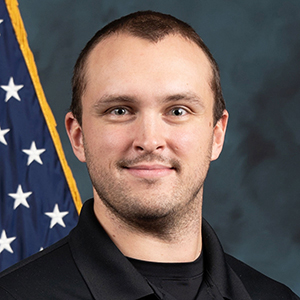 Korie Seville Technical Director, Hosting and Compute Center DISA
Korie Seville Technical Director, Hosting and Compute Center DISA -
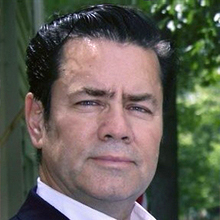 Kenneth D. Rogers Office Director, Strategy, Planning and Budget Department of State
Kenneth D. Rogers Office Director, Strategy, Planning and Budget Department of State -
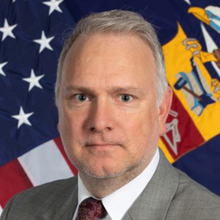 Scott Davis CISO CBP
Scott Davis CISO CBP -
 Anastasia Obis (Moderator) Staff Writer/Researcher GovCIO Media & Research
Anastasia Obis (Moderator) Staff Writer/Researcher GovCIO Media & Research
Speakers / Panelists
More federal agencies are exploring hybrid cloud solutions to meet mission-specific needs. Balancing on-premise data centers and IT systems with commercial, software-defined cloud solutions can present tricky cybersecurity challenges and unique security risks. This panel will discuss how to balance cybersecurity responsibilities with vendors and cloud strategies such as environment-as-code and zero trust for mitigating hybrid cloud vulnerabilities effectively.
Speakers / Panelists
-
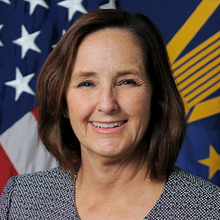 Stacy Bostjanic Chief Defense Industrial Base Cybersecurity, OCIO DOD
Stacy Bostjanic Chief Defense Industrial Base Cybersecurity, OCIO DOD -
 Chief Architect and Security Strategist, Public Sector Red Hat
Chief Architect and Security Strategist, Public Sector Red Hat -
 Joseph Fourcade Lead Cybersecurity Analyst ESCO VA
Joseph Fourcade Lead Cybersecurity Analyst ESCO VA -
 Amy Kluber (Moderator) Editor-in-Chief GovCIO Media & Research
Amy Kluber (Moderator) Editor-in-Chief GovCIO Media & Research
The threat landscape is constantly changing along with the fast pace of technology, and federal agencies need to be primed and ready to respond to all threats, including those from within. The ongoing federal zero trust approach is one component to getting there.
Speakers / Panelists
-
 Anjana Rajan Assistant National Cyber Director for Technology Security The White House
Anjana Rajan Assistant National Cyber Director for Technology Security The White House -
 Kate Macri Deputy Editor GovCIO Media & Research
Kate Macri Deputy Editor GovCIO Media & Research
We’ll present the Flywheel Awards to recognize leaders and their work in federal government.
The flywheel — a critical component in a machine to increase its momentum — is also a critical symbol representing our publication’s goal to keep federal IT decision-makers informed on technology’s impact on government. This momentum is what fuels the constant need for transformers to innovate in federal technology and communicate those strategies across the industry.
Speakers / Panelists
-
 Cyber Defender Stacy Bostjanic Chief Defense Industrial Base Cybersecurity DOD
Cyber Defender Stacy Bostjanic Chief Defense Industrial Base Cybersecurity DOD -
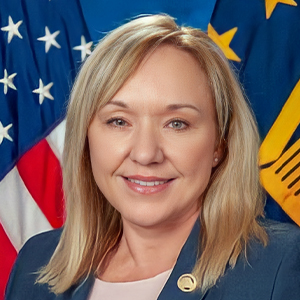 Cyber Defender Lynette Sherrill Deputy Assistant Secretary of Information Security & CISO Department of Veterans Affairs
Cyber Defender Lynette Sherrill Deputy Assistant Secretary of Information Security & CISO Department of Veterans Affairs -
 Cybersecurity Rising Star Korie Seville Technical Director, Hosting and Compute Center DISA
Cybersecurity Rising Star Korie Seville Technical Director, Hosting and Compute Center DISA -
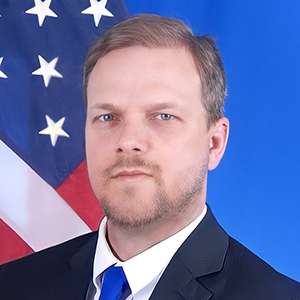 Zero Trust Advocate Gerald Caron CIO/Assistant Inspector General for IT HHS OIG
Zero Trust Advocate Gerald Caron CIO/Assistant Inspector General for IT HHS OIG
-
 Aaron Bishop CISO, Department of the Air Force
Aaron Bishop CISO, Department of the Air Force -
 Stacy Bostjanic Chief Defense Industrial Base Cybersecurity, OCIO, DOD
Stacy Bostjanic Chief Defense Industrial Base Cybersecurity, OCIO, DOD -
 Jason Burt Cybersecurity Advisor, CISA
Jason Burt Cybersecurity Advisor, CISA -
 Scott Davis CISO, CBP
Scott Davis CISO, CBP -
 Michael Epley Chief Architect and Security Strategist, Public Sector, Red Hat
Michael Epley Chief Architect and Security Strategist, Public Sector, Red Hat -
 Felipe Fernandez CTO, Fortinet Federal
Felipe Fernandez CTO, Fortinet Federal -
 Joe Foster Cloud Computing Program Manager, NASA
Joe Foster Cloud Computing Program Manager, NASA -
 Joseph Fourcade Lead Cybersecurity Analyst, Enterprise Cloud Solutions Office, Office of Information and Technology, VA
Joseph Fourcade Lead Cybersecurity Analyst, Enterprise Cloud Solutions Office, Office of Information and Technology, VA -
 Anjana Rajan Assistant National Cyber Director for Technology Security, The White House
Anjana Rajan Assistant National Cyber Director for Technology Security, The White House -
 Kenneth D. Rogers Office Director, Strategy, Planning and Budget, Department of State
Kenneth D. Rogers Office Director, Strategy, Planning and Budget, Department of State -
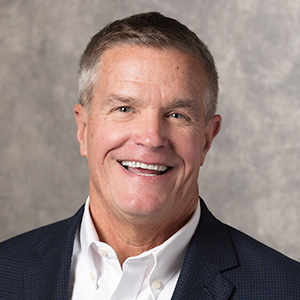 Peter Romness Cybersecurity Principal, CISO Advisor's Office, Cisco
Peter Romness Cybersecurity Principal, CISO Advisor's Office, Cisco -
 Korie Seville Technical Director, Hosting and Compute Center, DISA
Korie Seville Technical Director, Hosting and Compute Center, DISA



